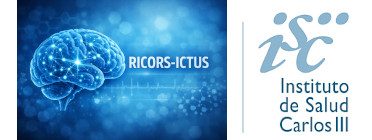Ramiro L, Faura J, Simats A et al. BMC Neurosci. 2023 Jan 27;24(1):7. doi: 10.1186/s12868-023-00775-7. PMID: 36707762
https://pubmed.ncbi.nlm.nih.gov/36707762/
Abstract: Ischemic stroke is a major cause of death and disability worldwide. Translation into the clinical setting of neuropro‑ tective agents showing promising results in pre-clinical studies has systematically failed. One possible explanation is that the animal models used to test neuroprotectants do not properly represent the population afected by stroke, as most of the pre-clinical studies are performed in healthy young male mice. Therefore, we aimed to determine if the response to cerebral ischemia difered depending on age, sex and the presence of comorbidities. Thus, we explored proteomic and transcriptomic changes triggered during the hyperacute phase of cerebral ischemia (by transient intraluminal middle cerebral artery occlusion) in the brain of: (1) young male mice, (2) young female mice, (3) aged male mice and (4) diabetic young male mice. Moreover, we compared each group’s proteomic and transcriptomic changes using an integrative enrichment pathways analysis to disclose key common and exclusive altered proteins,
genes and pathways in the frst stages of the disease. We found 61 diferentially expressed genes (DEG) in male mice, 77 in females, 699 in diabetics and 24 in aged mice. Of these, only 14 were commonly dysregulated in all groups. The enrichment pathways analysis revealed that the infammatory response was the biological process with more DEG in all groups, followed by hemopoiesis. Our fndings indicate that the response to cerebral ischemia regarding prot‑ eomic and transcriptomic changes difers depending on sex, age and comorbidities, highlighting the importance of incorporating animals with diferent phenotypes in future stroke research studies.
Funding: This work has been funded by Instituto de Salud Carlos III (PI18/00804) and by the European Regional Development Fund (FEDER). Neurovascular Research Laboratory takes part in the Spanish stroke research network RICORS-ICTUS. L.R is supported by a pre-doctoral fellowship from the Instituto de Salud Carlos III (IFI17/00012)

